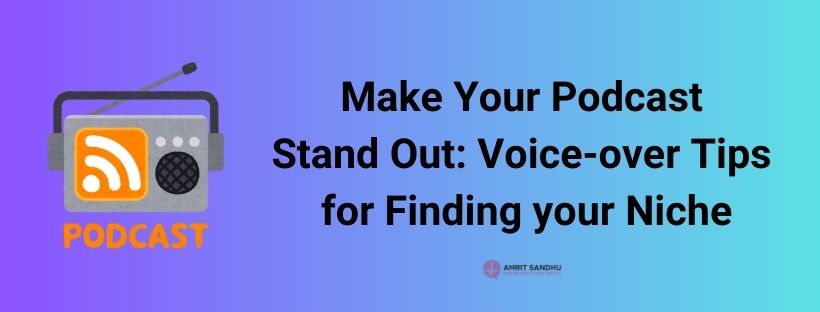Podcasting has exploded in popularity, and for good reason! It’s a fantastic way to share knowledge, connect with others, and build a community around your passions. But with so many podcasts out there, how do you stand out? How do you find your unique voice and create a show people will love?
That’s where voiceover comes in. It’s the magic ingredient that can transform your podcast from a good idea to a captivating experience. A compelling voiceover can:
– Grab attention: A strong voice can hook listeners from the very first second, making them want to hear more.
– Build trust and credibility: A professional voice can make your podcast sound more polished and authoritative, building trust with your audience.
– Enhance storytelling: A skilled voiceover artist can bring your stories to life, making them more engaging and memorable.
– Create a unique brand identity: Your voiceover can become a signature element of your podcast, helping you stand out from the competition.
So, how do you find your voiceover niche? Here are some tips:
1. Know Your Audience:
– Who are you trying to reach? What are their interests, their pain points, and their aspirations?
– What kind of content do they consume? Are they drawn to informative podcasts, entertaining podcasts, or something in between?
– What tone of voice will resonate with them? Do they prefer a friendly, conversational tone, or a more formal, authoritative tone?
2. Define Your Unique Value Proposition:
– What makes your podcast different? What unique perspective, knowledge, or experience can you offer your listeners?
– What problem are you solving for your audience? Are you providing information, entertainment, inspiration, or support?
– What’s your “why”? Why are you passionate about creating this podcast? What do you hope to achieve?
3. Experiment with Different Voiceover Styles:
– Don’t be afraid to try different voices and tones. Experiment with different microphones, recording techniques, and editing software to find what works best for you.
– Get feedback from friends and family. Ask them what they think of your voice and your podcast’s overall sound.
– Listen to other podcasts in your niche. Pay attention to the voiceover styles that you find most effective and engaging.
Once you’ve found your voiceover niche, it’s time to start creating your podcast! Here are some tips for creating a high-quality podcast:
1. Write a Compelling Script:
– Structure your content: Use a clear and concise structure to keep your listeners engaged.
– Use strong opening and closing lines: Grab attention with a compelling introduction and leave a lasting impression with a memorable conclusion.
– Incorporate storytelling techniques: Use anecdotes, metaphors, and humor to bring your content to life.
2. Choose the Right Microphone:
– Invest in a good-quality microphone. This will make a huge difference in the sound quality of your podcast.
– Consider your recording environment. Choose a quiet space with minimal background noise.
– Experiment with different microphone types. Dynamic microphones are great for live recordings, while condenser microphones are better for studio recordings.
3. Record and Edit Your Audio:
– Use recording software: There are many free and paid recording software options available.
– Edit your audio: Remove any background noise, adjust the volume, and add music or sound effects.
– Master your audio: Ensure that your audio is clear, balanced, and ready for distribution.
So there you have it! Finding your voiceover niche for podcasts is all about understanding your audience, defining your unique value, experimenting with different styles, and finding the right voice to bring it all to life.
Remember, it’s a journey, not a race. Experiment, get feedback, and have fun with it! And when you find that perfect voice that truly resonates with your listeners, you’ll know you’ve found your niche.



